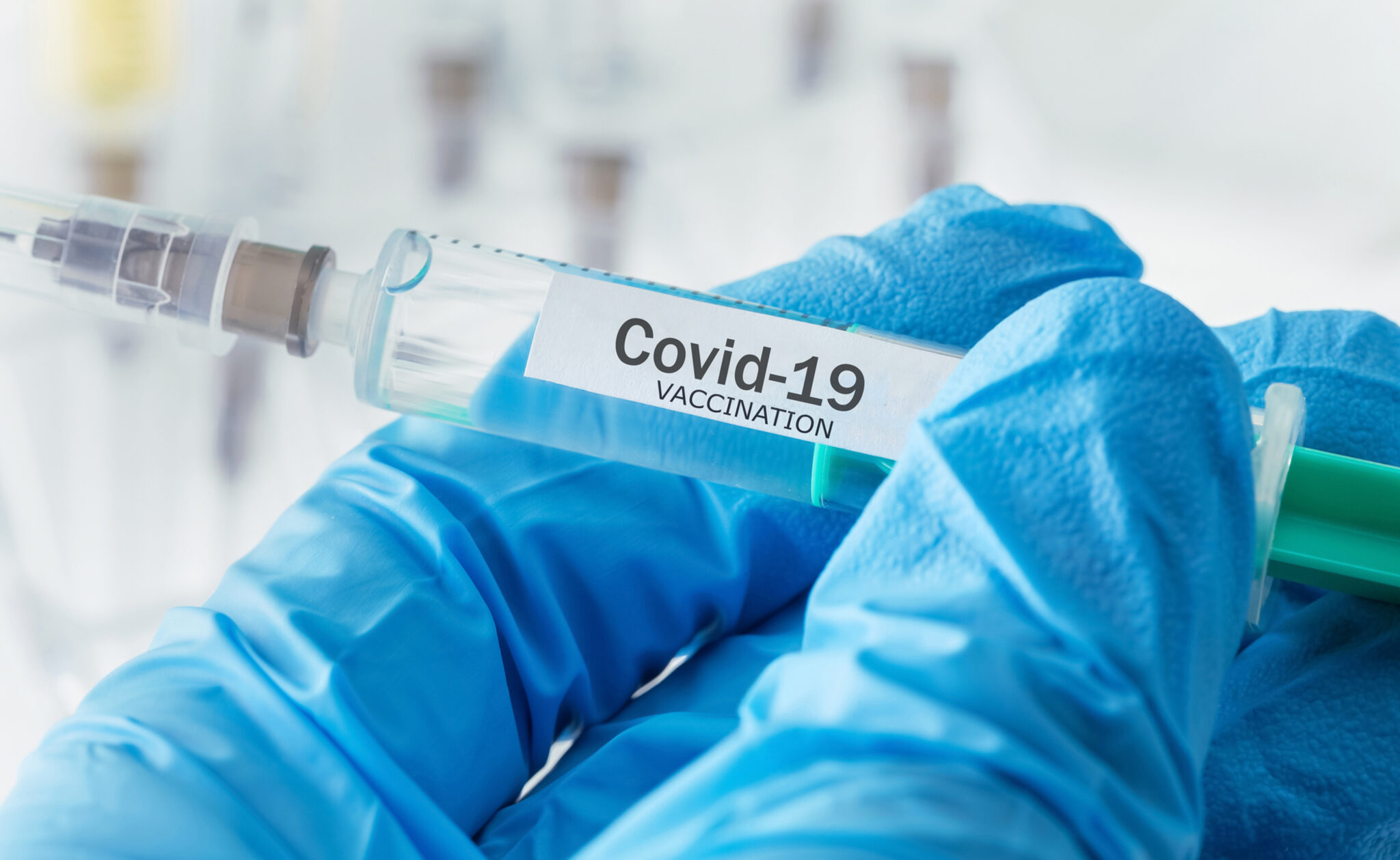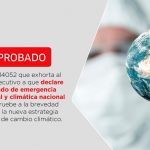7 lessons from the pandemic that businesses can consider to combat climate change

A few years ago, when we talked about climate change, we knew it was a threat that we had to address “today” to reduce the problems of the future. That has changed. Now it is a problem we have to address “today” and urgently to reduce the impacts of climate change “today”. We have no time to waste.
COVID has shown us that we are much more fragile than we think and that the current system can collapse quickly. Also that we need to address the issue collaboratively. If a rich country has vaccines for 5 times its population and a poor country has insufficient vaccines (or none at all) we all lose out as the virus can continue to spread and mutate.
Undoubtedly, a critical situation, which allows us to draw valuable lessons that can facilitate the understanding and implementation of initiatives to combat climate change. This context can be a powerful source of inspiration for the private sector to connect with the enormous opportunity that a sustainable world brings for business.
Some of the learnings are:
1. “If you take care of the earth, the earth will take care of us”.”
COVID shows us how deteriorated our relationship with nature can be. The loss of diversity and destruction of ecosystems makes it easier for many viruses to “jump” from the species that initially hosted them to humans.
If the impacts of climate change are not stopped, the development of countries is at risk and this will affect all companies and businesses. Therefore, it is necessary for companies to evaluate the value chain and the inputs they use, to ensure that they come from a sustainable origin and are not affecting nature.
2. “Being prepared is half the victory.”
We were not prepared. Health systems, hospitals, doctors, protocols, cities and almost all of us were taken by surprise. The fundamental message of “wash your hands” (which we all heard as children hundreds of times) gained traction, when it should have always had.
Companies should be looking at the present, but also imagining and projecting the future. This reduces business risks. A WEF report (The Global Risks Report 2020) indicates that the 5 most relevant risks for business are related to climate change and sustainability. Failure to be alert and attentive can lead to serious future problems.
3. “Cheap is expensive”.”
Walking down the street I see people with lousy quality face masks, sure that they are of (almost) no use. Probably someone bought them thinking of saving a few soles. An inadequate mask increases terribly the probability of contagion. If a person becomes infected, he/she will spend much more money to be cured (assuming, optimistically, that he/she is cured) and the savings he/she made on the mask will not make any sense.
Many solutions to address climate change and reduce greenhouse gases involve energy efficiency. This not only reduces environmental impact, but also generates savings. However, an energy-saving light bulb can cost 5 times more than an incandescent bulb. At first glance, the energy-saving bulb is more expensive, but if we go deeper into the analysis, the reader will realize that the cost of the bulb is the sum of the cost of the equipment plus the cost of use. If this variable is considered, the energy-saving bulb is definitely cheaper.
4. “Unity is strength”.”
The news in the media about the pandemic filled us with suffering. In contrast to that, we saw, face to face, the eyes of hope. Police, armed forces, public officials, businesses, civil society organizations, neighbors and people in general, some called angels, who came together to support those most in need. Organized groups of selfless support were formed. Moving and motivating.
The model works. If many companies need something or have the same problems, they can join forces. The climate crisis needs that, a lot of synergies. If companies join forces, as is happening in the framework of the nexos+1 platform (nexosmasuno.pe), they can solve common problems in less time, with less cost and in a more efficient way. Problems can be a perfect opportunity to bring out that gregarious spirit and demonstrate that genuine interest in working for the common good; that is, for everyone.
5. “The good thing about science is that it is true, whether you believe in it or not.”
There is a lot of speculation surrounding COVID, from its origin to its treatments and cures. Science, with difficulties, has made its way and has proposed guidelines (knowing that it is a new disease and that we have been learning along the way) that seek to help countries and companies to create more and better policies to combat the pandemic.
On climate change, the science is clear. We have to reach 2050 with a world of zero net carbon emissions. Each country has to contribute to this goal and within each country, the different actors that interact will have to be part of this goal. Peru initially proposed a 30% emissions reduction by 2030 and has already raised the ambition to 40%. Likewise, corporate policies and commitments must be aligned with science. Companies must do their part, but in line with what science requires.
6. “Small actions, big solutions”.”
One irresponsible person can harm many responsible people. One person who does not wear a mask, who does not wash his hands and who does not take precautions and care can affect many others. This shows us that every action, positive or negative, counts.
For climate action, all positive actions add up. Companies have the possibility to measure their Carbon Footprint and reduce it. Maybe it is a service company with a small Footprint, but it all adds up. In the process, the company can train and motivate its employees (who will be able to take the message to their family and friends), its suppliers (who will think about raising their own standards), its customers (who will realize how companies take responsibility) and the list goes on. At this point, if your company doesn't add up, then subtract.
7. “For every complex problem there is always a simple, elegant and totally wrong solution.”
If we want to restrict the number of people on the streets to reduce the risk of contagion, it is simple. Let men go out on some days and women on other days. It seems logical, but in practice, the “pico y género” did not work in Peru. Women were overloaded with work, some understood the measure not as “that day you cannot go out” but as “that day I must go out”. So evident was the malfunctioning of the “pico y género” that the advisor who proposed this measure had to recognize that there was a mistake and President Vizcarra annulled that decree.
Tackling climate change involves systemic, not simple, thinking. More electric cars generate fewer emissions but you have to consider how you are going to charge the batteries in those cars. If the energy matrix that generates electricity is very demanding of fossil fuels, we are not generating a solution. If we reforest, we capture carbon and that is good. However, if the forestry plantation was placed in an inadequate place and without technical criteria, it could affect the ecosystem and, for example, consume water that farmers used “downstream”. Sometimes, the cure is worse than the disease.
If companies and individuals strengthen their capacity for systems thinking, we will find the path to prosperity in business and a healthy planet. The two are compatible and can be balanced. Future generations will be very grateful.
The path is marked. Sooner or later we will all become carbon neutral or we will simply cease to be what we are. COVID brings us these 7 enormous learning opportunities that the private sector can apply. We do not have the vaccine to ensure that we capitalize on this learning, but we do have the confidence that together we can build a better world, for everyone.

Javier Perla
Libélula's Sustainable Business Manager
← Previous
Next →
Stay up to date
Receive a summary of relevant news about companies and sustainability. All the months. Free!


